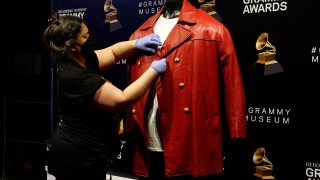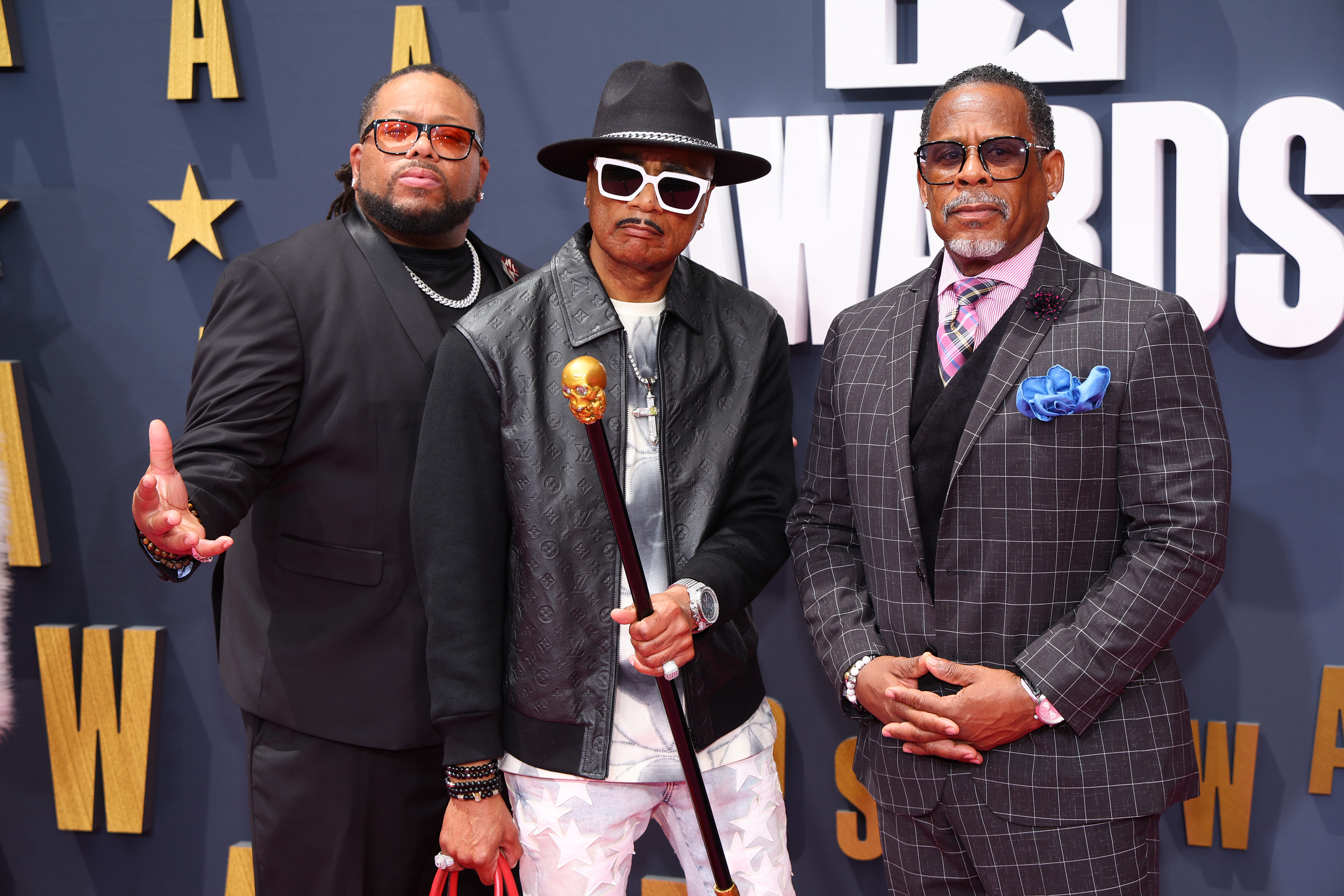
The Grammy Museum announced Thursday that it is launching the “Hip-Hop America: The Mixtape Exhibit,” celebrating 50 years of the music and culture ’s global impact.
The 5,000 square foot exhibit will include rare artifacts such as Tupac Shakur’s handwritten 1992 essay “Give Me Liberty or Give Me Death” — in which the young hip-hop superstar found parallels between one of the best-known speeches in American history, a cry for freedom given by founding father Patrick Henry at the Second Virginia Convention, and the experiences of being a minority in the U.S.
The exhibit at the Los Angeles museum also includes Notorious B.I.G.’s red leather pea jacket, worn in the music video for Junior M.A.F.I.A.’s “Players Anthem,” and LL Cool J’s red Kangol bucket hat.
“Hip-Hop America” goes beyond simple chronology: visitors will explore the music, choreography, fashion, business, activism, car culture, and the history of hip-hop by navigating displays dedicated to regional music scenes, technological advancements, formative media engines like “Yo! MTV Raps" and beyond.
Get top local stories in Southern California delivered to you every morning. >Sign up for NBC LA's News Headlines newsletter.
It will open Oct. 7, 2023 and run until Sept. 4, 2024.
Two outfits designed by hip-hop fashion legend Dapper Dan can be found on display: the black leather jacket Melle Mel wore during a performance at the 1985 Grammy Awards and Busy Bee's characteristic black-and-yellow leather bucket hat and jacket.
“Hip-Hop America: The Mixtape Exhibit” will also feature an interactive “Sonic Playground,” which will allow visitors to experiment with DJing, sampling, and rapping.
“The exhibit has been carefully curated to reach everyone from hip-hop connoisseurs to uninitiated novices," says co-curator Jason King, dean of the University of Southern California's Thornton School of Music. "And we’ve thrown in a few left curve surprises like sections on hip-hop sonics and car speakers, and on the connections between hip-hop and partner genres like R&B."
He told The Associated Press: “Hip-Hop America is an intriguing look at a thunderous form of ‘can’t stop won’t stop’ culture that has continued to shift and push the envelope of innovation for the past 50 years.”



